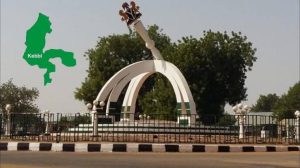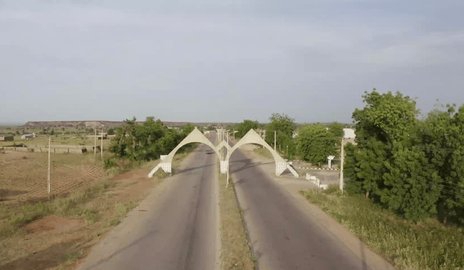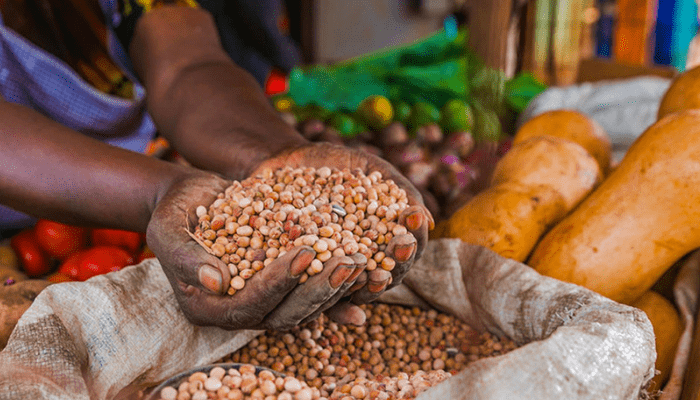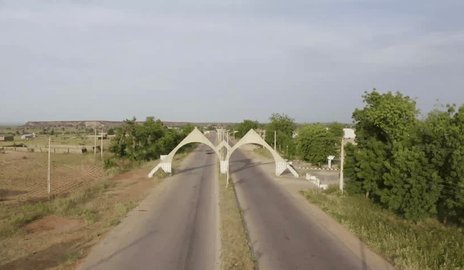
By Laiatu Augustine Bamaiyi
Kebbi State, located in northwestern Nigeria, boasts a rich historical tapestry woven from the threads of powerful kingdoms, the rise and fall of empires, and the echoes of a vibrant cultural heritage.
This article delves into the state’s history, geography, socio-cultural landscape, and the economic challenges it faces today.
A Legacy of Kingdoms and Empires
Kebbi’s history is deeply intertwined with the Hausa and the Sokoto Caliphate. The legendary warrior Muhammadu Kotal Kanta carved out the Kingdom of Kebbi from the Songhai Empire, establishing a powerful presence in the region. Other significant entities included the Yauri Kingdom and the Zuru Confederation.
The early 19th century witnessed the rise of the Sokoto Caliphate, led by Sheikh Usmanu Danfodio. Kebbi became part of the caliphate’s southwestern region under the leadership of Sheikh Abdullahi Danfodio, Usmanu’s brother. The colonial conquest of the Sokoto Caliphate in 1893 brought the area under British rule as part of the Northern Nigeria Protectorate.
Following Nigeria’s independence in 1960, Kebbi was initially part of the North-Western State (1967-1976) and later Sokoto State (1976-1991). Finally, on August 27, 1991, Kebbi State was created with Birnin Kebbi as its capital. The state is now comprised of 21 Local Government Areas.
A Diverse Landscape
Kebbi’s geography is characterized by extensive floodplains, which are the lifeblood of its agricultural economy. The Niger River flows southwest across the state, while the Rima River traverses its center, both creating fertile floodplains. The Kainji Lake, formed by the Niger River, is a significant source of surface water, with 80% of its expanse located within Kebbi.
The state’s geology is dominated by sedimentary deposits of the Sokoto Rima Basin, covering about 50% of its area. The remaining land is underlain by Precambrian Basement complex rocks. The predominant soil type is ferruginous tropical soil, which is susceptible to erosion and drought. However, the alluvial soils found in the Rima and Niger River Valleys are fertile and suitable for agriculture.
Rainfall patterns vary significantly across the state, with the north receiving less rainfall than the south. The wet season lasts from June to September in the north and from April to October in the south.
A Tapestry of Cultures
Kebbi State is home to a diverse population of over 3 million people, according to the 2006 census. The state is divided into four Emirate Councils, each led by a first-class Emir: Gwandu (with headquarters in Birnin Kebbi), Argungu, Yauri, and Zuru. The Emir of Gwandu serves as the Chairman of the Kebbi State Council of Chiefs.
The state’s major ethnic groups include the Hausa, Dakarkari (Lalna), Kambari, and Zabarmawa, each with their own distinct cultural traditions. Kebbi is renowned for its vibrant cultural festivals, including the Argungu International Fishing Festival, the Zuru International Uhola Cultural Festival, and the Rigata in Yauri Local Government. Tourist attractions include the Kanta Museum in Argungu, the tomb of Sheikh Abdullahi Danfodio in Gwandu, and the Girmache Shrine in Zuru.
Economic Challenges and Opportunities
Kebbi’s economy has historically been reliant on agriculture, with the production of cash crops like groundnut, cotton, gum Arabic, tobacco leaves, and cowpeas. However, the shift towards oil production in Nigeria led to a decline in agricultural investment and an increased dependence on food imports. This, coupled with globalization and the lack of processing industries, has resulted in a high poverty rate in the state.
Agriculture remains the backbone of the economy but faces numerous challenges, including low technology adoption, limited access to credit, declining rainfall, fragmented land holdings, and low soil fertility. Commerce, primarily focused on distributive trade, is also hampered by low purchasing power.
Despite these challenges, Kebbi State has significant potential for economic growth. The state’s abundant agricultural resources, coupled with its strategic location, offer opportunities for investment in modern agriculture, agro-processing, and trade. Developing infrastructure, promoting tourism, and investing in human capital are crucial steps toward achieving sustainable economic development.
Looking Ahead
Kebbi State stands at a crossroads. Its rich history and cultural heritage provide a strong foundation for the future. However, the state faces significant economic challenges that require bold and innovative solutions. By harnessing its potential, embracing new technologies, and fostering collaboration, Kebbi can build a brighter future for its people and secure its place as a vibrant and prosperous state in Nigeria.
Congratulations, Kebbi State, on 33 years of statehood.





